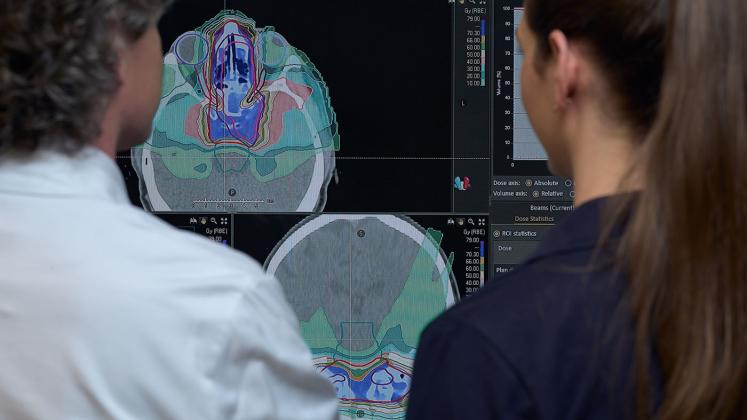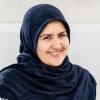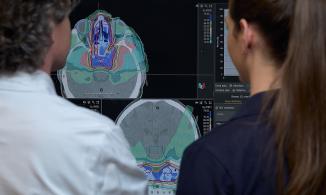
Division Medical Physics
Mission Statement
The Division Medical Physics with an emphasis on particle therapy aims to optimize Particle Therapy on the basis of new developments in medical radiation physics. Approaches are aligned within the Department and can be dosimetry/microdosimetry, MC simulations, big data, treatment plan optimization, software development, process management.
The MedAustron Particle Therapy and Research Center, KL's teaching and research site, is one of six centers worldwide that can deliver radiation therapy with both protons and carbon ions. In addition, MedAustron is one of only three centers that also has a dedicated research radiation room and corresponding laboratory facilities. The goal of particle therapy is to maximize the sparing of healthy tissue while controlling tumors with a very precise and highly complex technology. In order to realize this expectation, the development and advancement of technical methods for the adaptation of precision ion therapy to the respective patient-specific situation must be advanced. These adjustments and adaptations can be geometric, dosimetric, microdosimetric, biological as well as temporal and process-oriented in nature.
In the optimization of ion therapy and in particular carbon therapy, different approaches are used to search for the ideal distribution of the densionizing fractions of the radiation (high-LET fractions) in hypoxic or radioresistant tumor areas. At the same time, a sufficiently steep dose decay towards normal tissue should minimize side effects. In order to extract appropriate parameters and enable their optimization, extensive Monte Carlo simulations and software developments are needed in the context of radiation planning software. In addition, the already existing tools for Monte Carlo simulation at MedAustron can be used not only for optimization of therapy but also for further developments in microdosimetry. Microdosimeters are special detectors for the measurement of dosimetric quantities, which allow statements on the biological effects of particle therapy. MedAustron has already developed such detectors together with other European partners, but they need to be further investigated and tested for their applicability. Some members of the microdosimetry and Monte Carlo simulation groups at MedAustron are considered world leaders in these fields.

Univ.-Prof. PD DI Markus Stock PhD
Head of
Division of Medical Physics with an emphasis on Particle Therapy

Mansure Schafasand MSc.
Scientific Staff (PreDoc)
Division of Medical Physics with an emphasis on Particle Therapy
Dr. Julia Cecilia Masar-Osztovits
Assistant, Assistant
Division of Medical Physics with an emphasis on Particle Therapy, Division of Radiation Oncology with an emphasis on Particle Therapy





